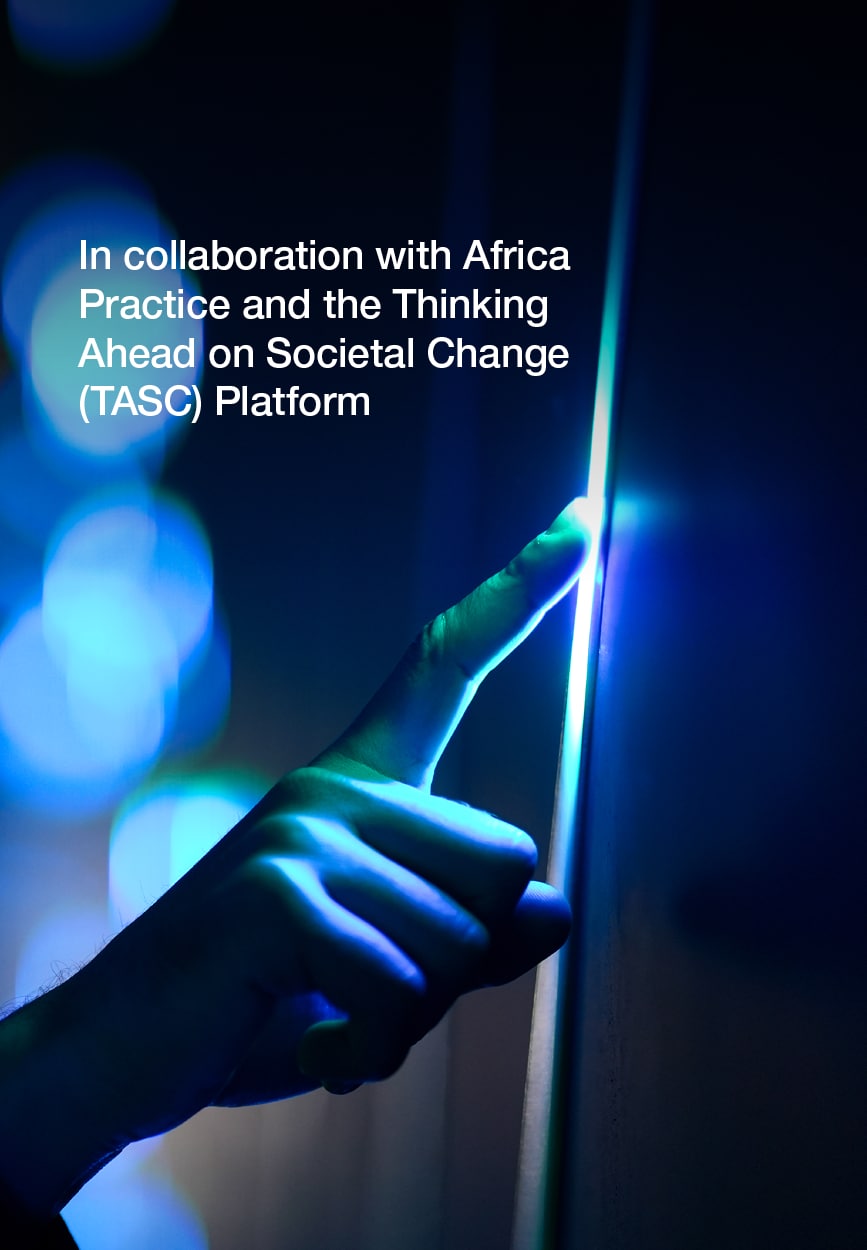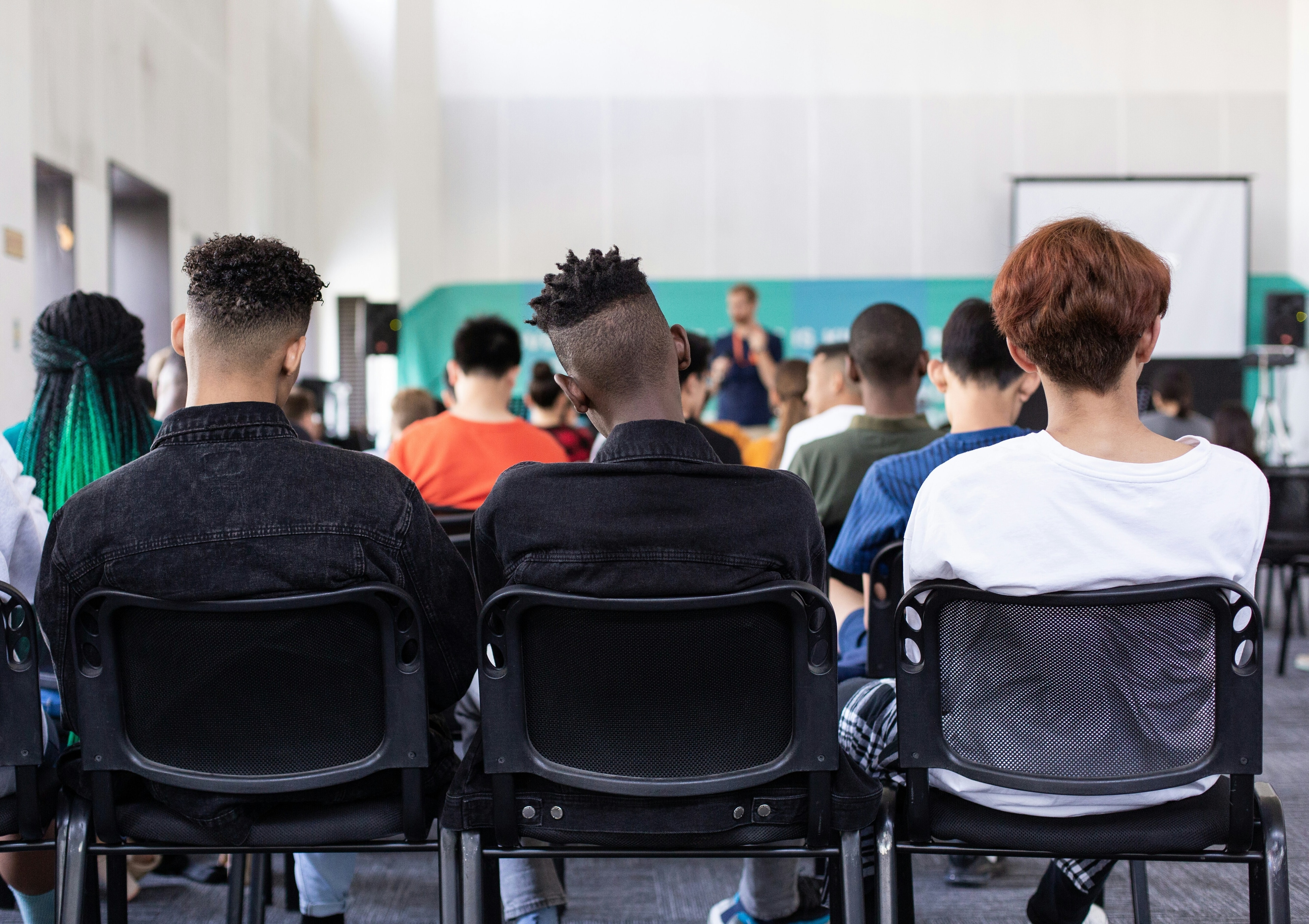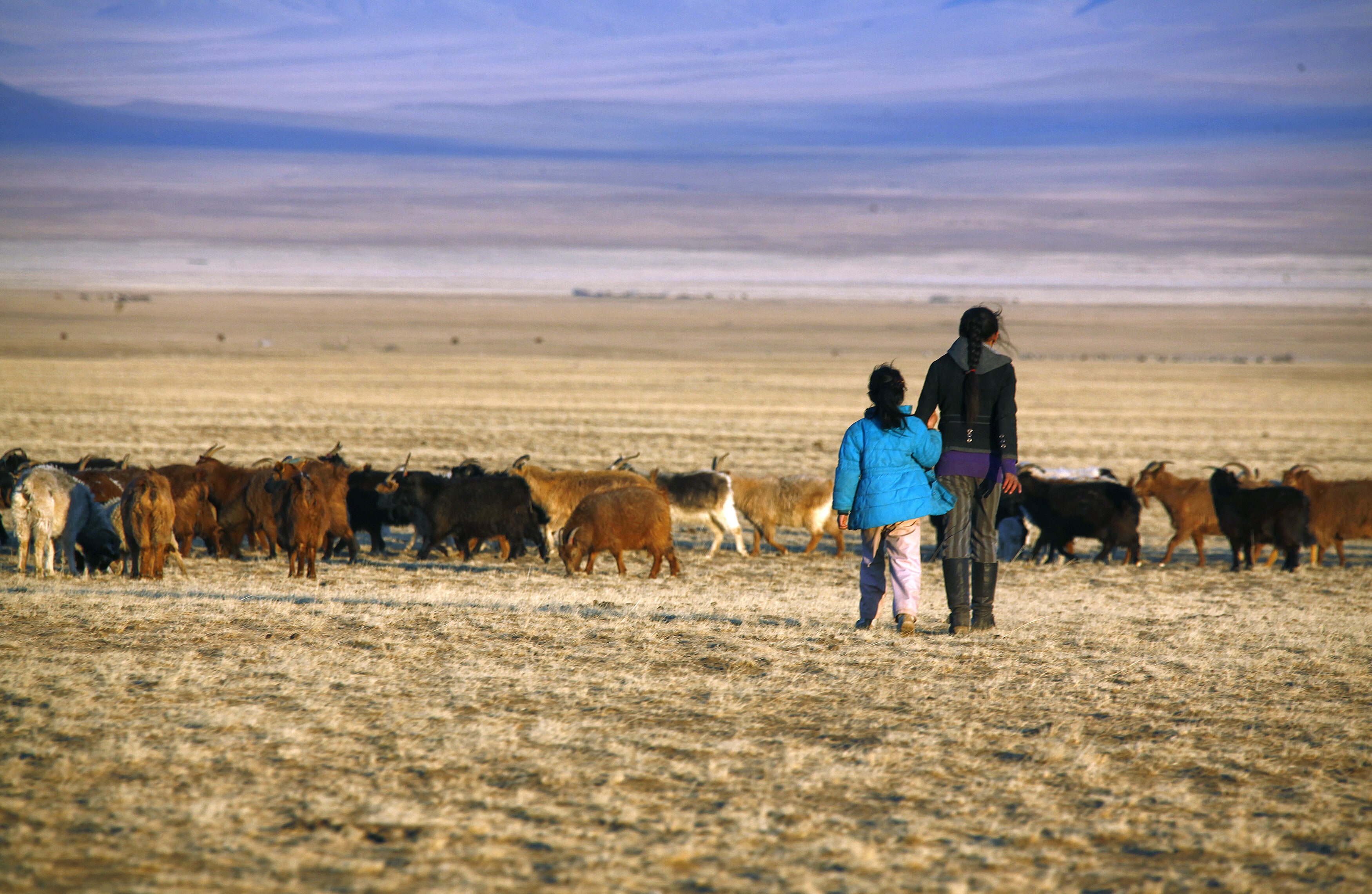How can universities solve the climate crisis?

Universities' role in solving global challenges crosses multiple layers.
Image: Unsplash/Xavier Coiffic
Lindsay Hooper
Chief Executive Officer, University of Cambridge Institute for Sustainability LeadershipStay up to date:
Sustainable Development
- Universities are vital in tackling global sustainability challenges through research, education and innovation, yet their transformative potential remains underutilized.
- By collaborating more strategically with each other and external stakeholders, universities can amplify their contributions and unlock sustainable solutions at scale.
- To achieve sustainability gains, universities must overcome significant barriers and establish clear conditions for success.
The world is grappling with a range of interconnected sustainability crises, as nations seek to achieve sustainable prosperity and resilience on a finite and environmentally degraded planet.
Universities are crucial to tackling these challenges at multiple levels. They provide groundbreaking research into the root causes of climate challenges – and the most promising solutions to address them – while educating today’s and tomorrow’s leaders.
What’s more, they are innovating and fostering new technologies, enterprises and decision-support tools that can solve these challenges.
However, while universities already make an impact, their knowledge, capabilities and innovation ecosystems remain under-leveraged in supporting societies to address the global sustainability crisis at scale.
Greater and more strategic inter-university collaboration – and more ambitious and effective collaborations with external partners – could enable more effective shared efforts to ensure that economies deliver for people, nature and climate. But collaboration isn’t straightforward.
The challenges of collaboration
Competition for scarce funding, academic incentive structures and career progression pathways are not always conducive to collaboration within or beyond academia.
When it comes to working with external partners, President Hugh Brady of Imperial College suggests that part of the problem lies in the “shop window” of the university. Outside stakeholders often lack a clear understanding of universities’ capabilities and may struggle to navigate these often decentralized institutions.
In addition, the odds seem increasingly stacked against effective international alliances that could enable step-change progress.
The growing politicization of global challenges, increased scrutiny of funding sources, national protectionism around intellectual property and technologies and lack of long-term government investment in research, innovation and education are key barriers.
Yet, despite these challenges, innovative approaches are unlocking significant impact.
Fostering new structures and collaborations
Collaborations within and between universities – to combine respective strengths in support of real-world impact at scale – are essential.
Imperial College has tackled the challenge facing external partners when navigating universities’ capabilities by establishing four new cross-cutting schools of convergence science.
The schools span traditional departmental and faculty boundaries to create larger communities of researchers focused on strategic areas such as artificial intelligence (AI), medtech and climate science.
A new interdisciplinary collaboration between scholars at the University of Pennsylvania is exploring the future of climate finance following the landmark decision on a New Collective Quantified Goal at the 2024 UN Climate Conference (COP29).
Integrating finance, geopolitics, equity and other disciplines, this collaboration engages practitioners in proposing innovative ideas to help the world achieve its climate finance goals.
The University of Cambridge collaborates with other universities to build momentum around the most promising policy solutions and to unlock innovations.
This includes its work with the London School of Economics on net-zero pathways that will deliver economic growth and prosperity, with the School of Governance at the University of Witwatersrand in South Africa, to convene leading businesses to contribute to public policy. It also includes a partnership with the University of Manchester to develop a cross-UK innovation cluster to fuel the growth of spinout companies, attract investment and foster inclusive economic development across the United Kingdom.
Unlocking impact through partnerships
To enable real-world change, partnerships are essential.
There is growing recognition that addressing global challenges requires ambitious action to craft effective national, regional and place-based strategies.
For instance, the Indonesia–NTU Singapore Institute of Research for Sustainability and Innovation (INSPIRASI) unites Indonesia’s Endowment Fund, the Ministry of Higher Education, Nanyang Technological University Singapore (NTU) and four Indonesian universities with researchers, students and industry partners from Indonesia and Singapore.
Its focus is on climate change mitigation and sustainability for Southeast Asia’s tropical climate.
INSPIRASI also develops initiatives such as a renewable energy living lab to bridge academic research and industrial applications.
Place-based collaborations further highlight the power of stakeholder partnerships. At King Abdullah University of Science and Technology, a collaboration with the Saudi Electric Company advanced carbon capture technology tailored to Saudi power plant emissions and environmental conditions.
This partnership culminated in deploying a carbon capture system at the Rabigh Energy Production Plant, supporting Saudi Arabia’s low-carbon transition and net zero goals.
Similarly, the Cambridge Conservation Initiative exemplifies academia-practice collaboration, bringing together research across disciplines with 10 internationally focused conservation organizations to transform biodiversity conservation.
Just a few of the cluster’s tangible impacts include aiding Union Bancaire Privée’s biodiversity strategy and managing a large scale programme to restore landscapes and seascapes across Europe.
Essential conditions for success
While many examples exist globally, much more is needed as climate change and the nature crisis worsen faster than solutions can be implemented. Urgent action is essential.
Universities have a critical role but can only reach their full potential through collaboration. Governments can offer funding and policies to foster innovation, while businesses and philanthropists provide resources and align academic efforts with real-world needs.
Forums that convene academia, public and private sectors and civil society are crucial for dialogue, identifying gaps and building trust – each of which is key to effective collaboration.
The “4P” partnership model – which promotes large-scale collaboration between professors, public, private and philanthropic sectors – is pioneered by the World Economic Forum.
During New York Climate Week, a session with the Columbia Climate School and the Forum’s GAEA (Giving to Amplify Earth Action) initiative underscored the importance of academia in providing transparency, risk assessments, research and technical expertise to scale solutions from concept to execution.
One example is the Aviation Impact Accelerator, a partnership involving researchers, modellers, industry, government and philanthropy to advance sustainable aviation.
Its report, Five Years to Chart a New Future for Aviation, is already shaping government policy, industry research and development and investment strategies, with potential applications in food, land use and infrastructure sectors.
As sustainability challenges grow, universities must deliver solutions through strategic collaboration. By fostering ideas and scaling their deployment, academia and its partners can create transformative impacts. The time to act is now and the potential rewards are immense.
How is the World Economic Forum forging philanthropic partnerships for climate and nature?
Don't miss any update on this topic
Create a free account and access your personalized content collection with our latest publications and analyses.
License and Republishing
World Economic Forum articles may be republished in accordance with the Creative Commons Attribution-NonCommercial-NoDerivatives 4.0 International Public License, and in accordance with our Terms of Use.
The views expressed in this article are those of the author alone and not the World Economic Forum.
Related topics:
Forum Stories newsletter
Bringing you weekly curated insights and analysis on the global issues that matter.
More on Education and SkillsSee all
Shankar Keshav Prasad
September 15, 2025
Emilian Axinia
September 11, 2025
Alexander Shevchenko
September 4, 2025
Corinne Brenner and Mandë Holford
September 4, 2025
Bolor-Erdene Battsengel and Grace Marr
September 4, 2025






